PETROZAVODSK, Russia – On a cold April morning, a closed coffin was laid to rest with military honors in the local cemetery of Petrozavodsk, a city of 235,000 people in the republic of Karelia.
Inside the coffin lay the body of 19-year-old Russian soldier Kirill Chistyakov, one of the first to be sent by the Kremlin to invade Ukraine in 2022.
Relatives, friends and local officials gathered to pay tribute to Chistyakov, who was killed some 1,750 kilometers from his hometown.
For millions of Russians, the war has been far removed from everyday reality, except for those in regions neighboring Ukraine that have faced intensified cross-border shelling.
For Chistyakov’s family — and those of at least 49,000 Russian soldiers confirmed to have been killed in the fighting — the war has changed everything. Yet even in the face of their loss, few families of slain soldiers have publicly questioned the war.
Irina Chistyakova, the soldier’s mother, broke down in tears and fell to her knees as the military guard fired three rifle volleys and local priests chanted a prayer.
Those who came to bid farewell to Chistyakov were also crying and carrying carnations traditionally placed on graves.
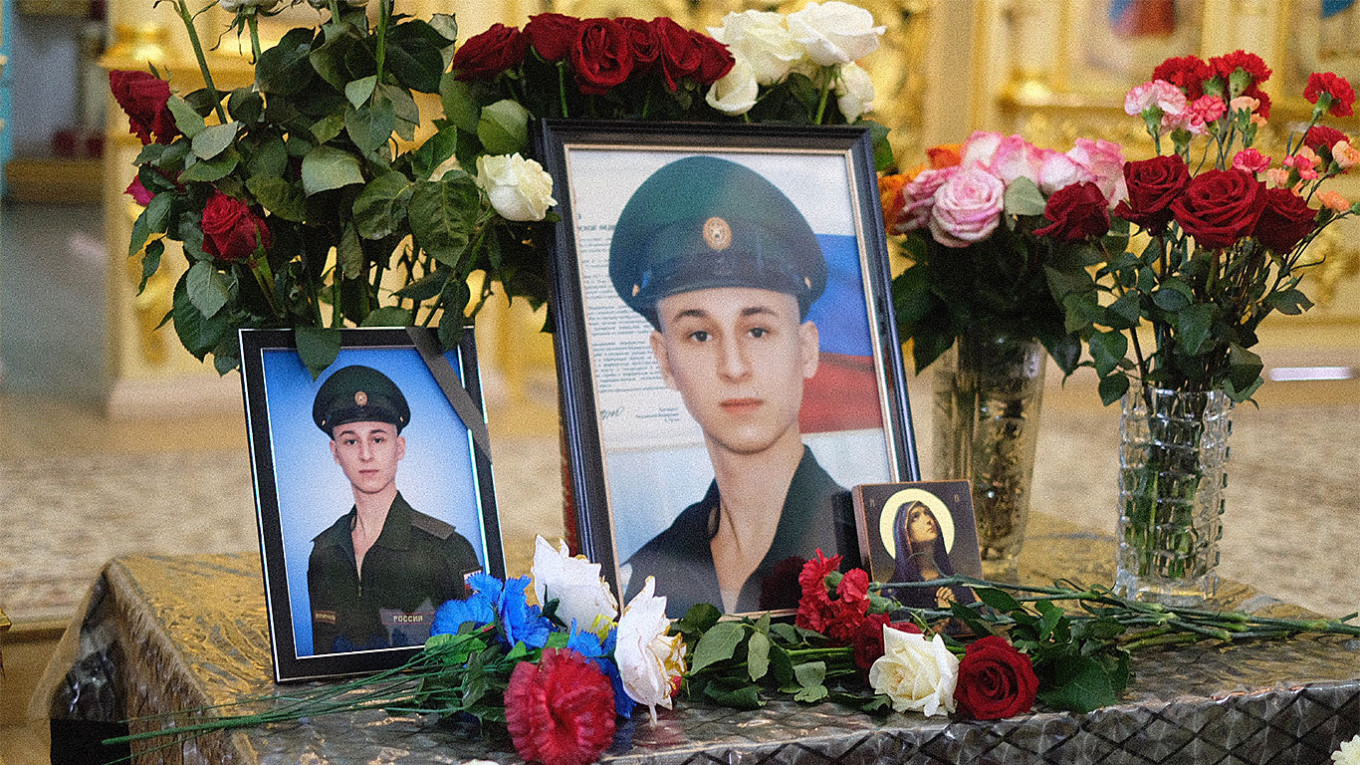
Chistyakov was buried at the Honorary Sulazhgory Cemetery among other Russian servicemen and Wagner mercenary fighters who died in the war.
“It’s painful when parents have to bury their children, especially when it happens to a young person who had so much life left to live,” Chistyakov’s friend Georgy said at the funeral.
“I’m burying him — and he was only a month younger than me.”
Chistyakova had been desperately trying to find her son for two years after he went missing in action in the Kharkiv region village of Mala Rohan. Russian forces occupied the village for 20 days in March 2022 and used it as a military point to fire at Kharkiv city.
While there is no public information on how Chistyakov died, Mala Rohan became a site of heavy fighting and Ukraine regained control of the village at the end of March.
Human rights organizations that month urged an investigation into allegations of apparent abuse by Ukrainian forces against captured Russian fighters that reportedly took place in Mala Rohan.
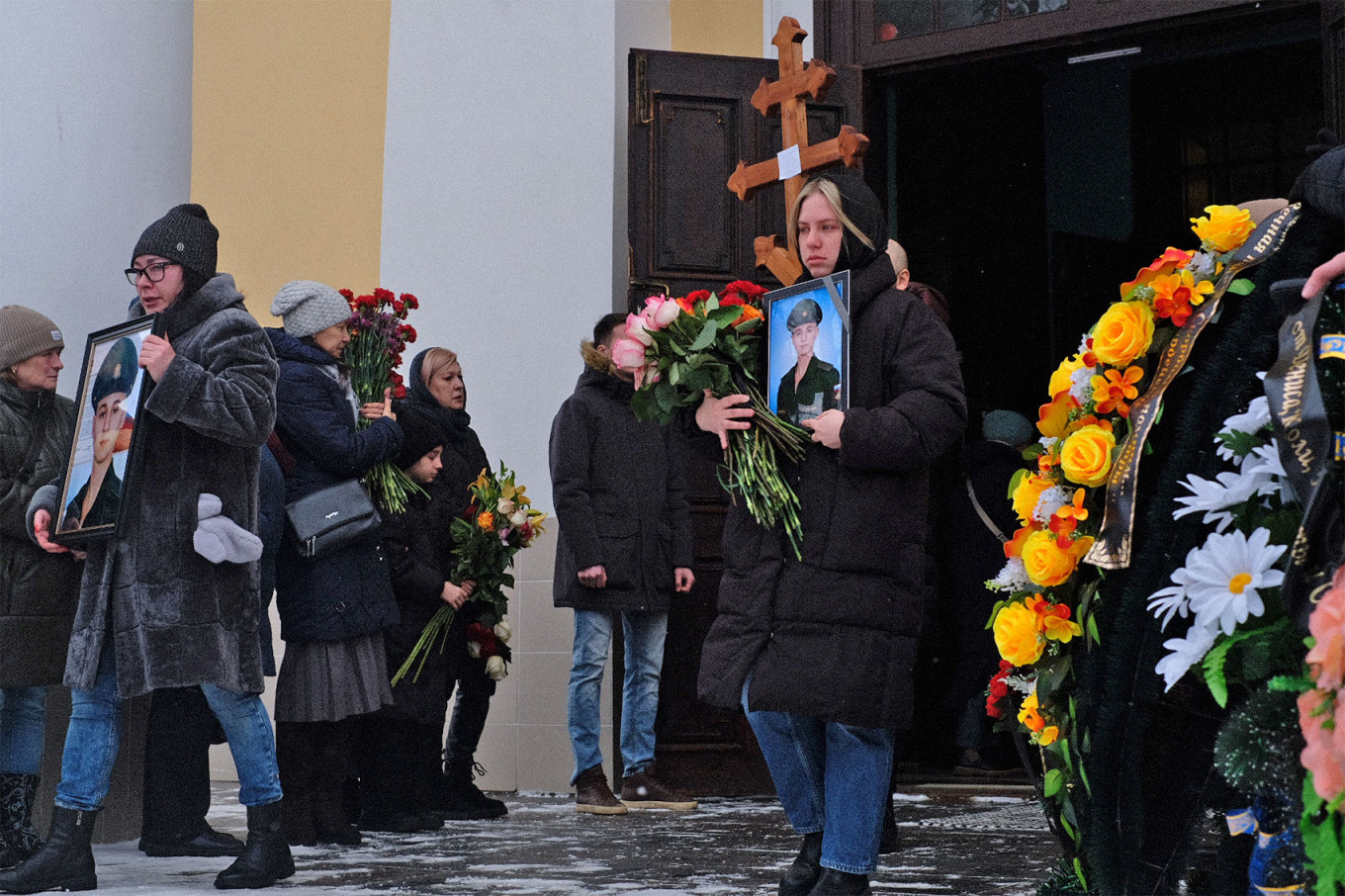
Since his childhood, Chistyakov had dreamed of becoming a soldier — he joined a cadet military school for boys and graduated with honors.
When he turned 19 in 2021, Chistyakov joined the army as a conscript, fulfilling the compulsory service for military-eligible men. He had in fact signed a military contract in November of that year, his mother said, hardly expecting that he would be sent to the battlefield in three months.
Shortly before the invasion, he told his family that he and his comrades were being sent to military drills in the Kursk region to “protect the border” and that they would have no communication for around one month.
“They didn’t even know why they were going to Ukraine. They had no idea,” his mother said in an interview in 2022.
The last time Chistyakov called his family was shortly after the start of the invasion from a Ukrainian phone number.
Since then, Chistyakova had to search for her son both in Russian morgues and in Ukrainian captivity. She even contacted Ukrainian mothers and the Ukrainian Red Cross in search of any information she could get.
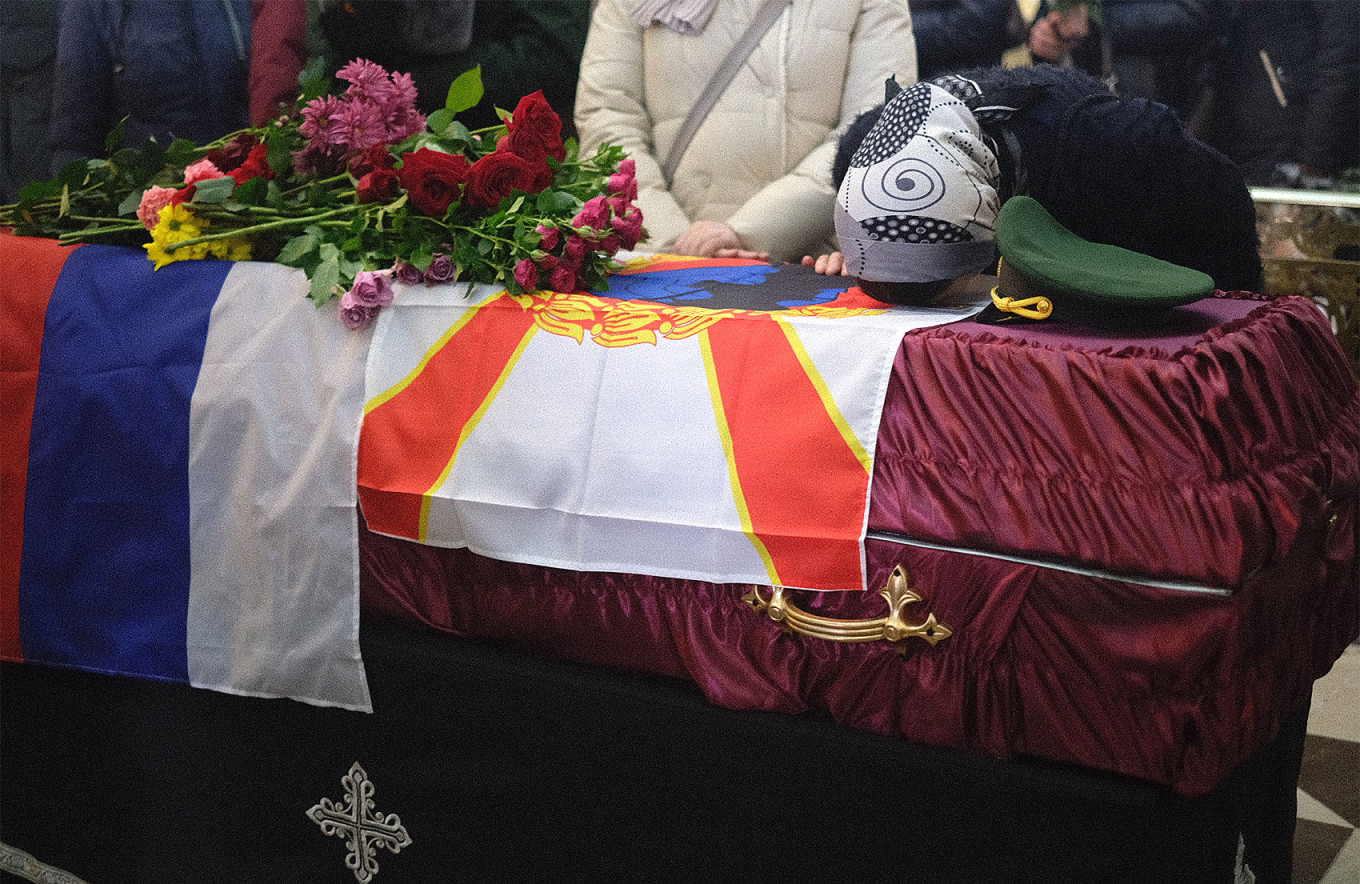
Chistyakova spoke out about Kirill’s disappearance in the media, urging the authorities to act and even appealed to President Vladimir Putin, becoming one of the leading voices among other mothers whose sons were sent to Ukraine.
“We, citizens of the Russian Federation, elected you as president so that you would keep the country in order…We elected you so that you would defend our law and the citizens of this country,” she said in her appeal.
As part of her quest for answers, she also sifted through numerous photos of deceased soldiers and visited a military morgue in the southern Russian city of Rostov-on-Don, helping other families to find their missing relatives.
Eventually, she spoke with a released Russian prisoner of war who claimed that her son was being held captive in Ukraine. However, it was later discovered that the released prisoner had mistaken another man for Chistyakov.
Chistyakov’s remains were identified as his last month through DNA testing, his mother said.
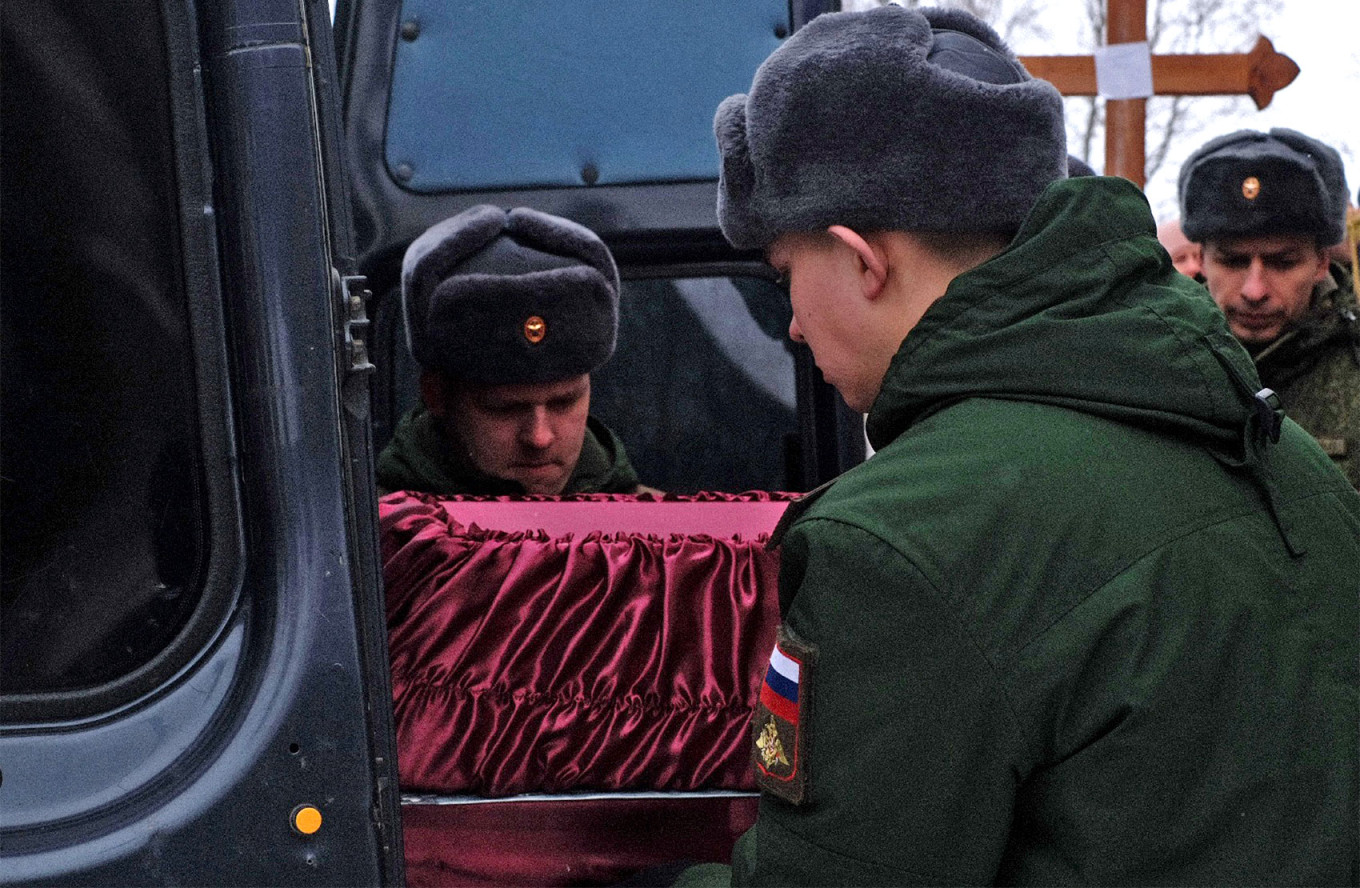
Shortly after the start of the invasion, Putin said that “only professional military personnel — officers and contract soldiers — take part in this operation. There are no conscripts, and we do not plan to do this.”
Chistyakova believes her son was “deceived” into signing his military contract.
But despite her criticism of the Russian military and Defense Minister Sergei Shoigu for their apparent lack of help in finding her son, Chistyakova does not seem to question why the Kremlin started the war. Instead, her criticisms lie in the fact that the invasion was carried out by untrained soldiers.
“Even if such a military operation was assigned, it should involve trained individuals who have experience in conflicts such as Chechnya and Syria,” Chistyakova said.
”If such a situation has arisen and troops are being deployed, they should not include our children.”
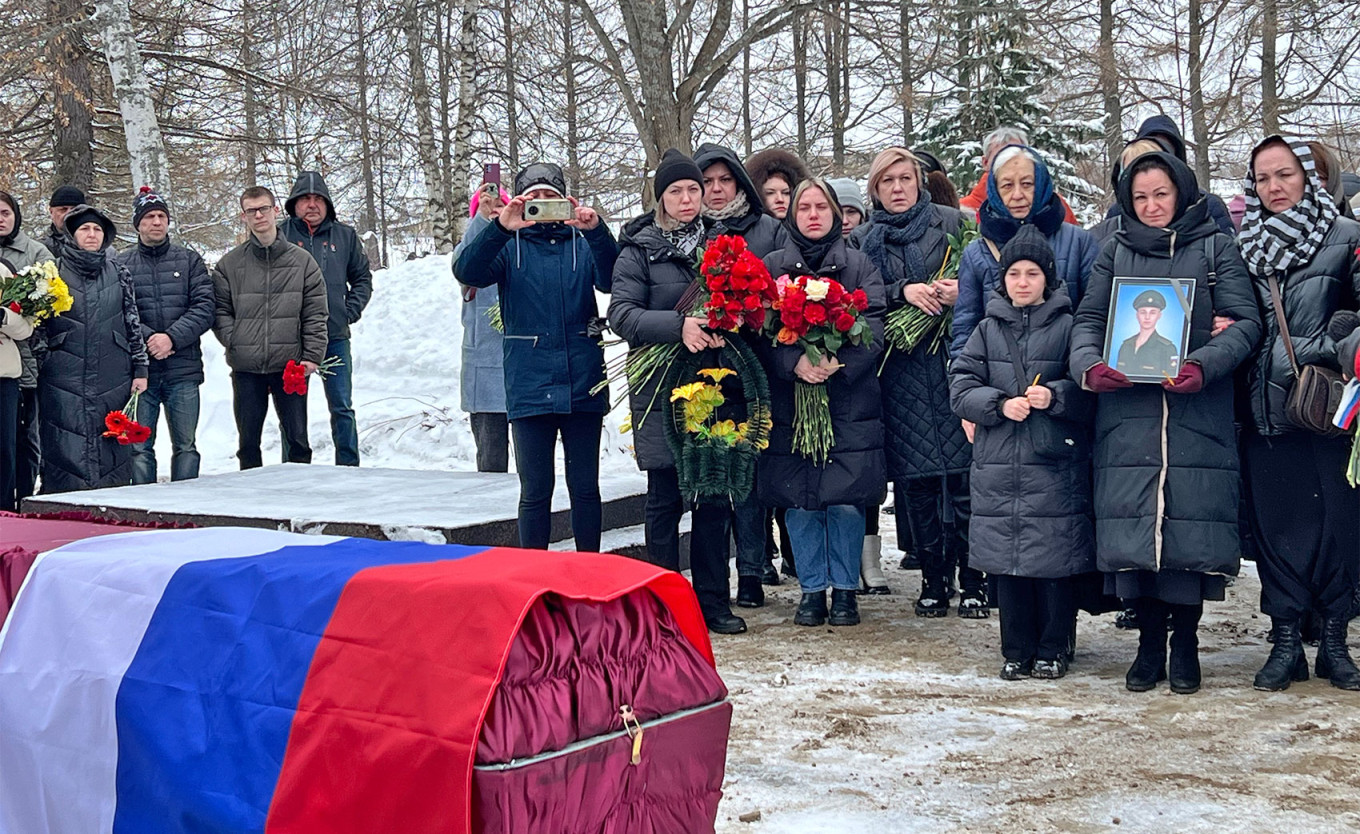
Russian authorities insist that they were “forced” to launch what they call a special military operation to “protect the country” from Ukrainian and Western aggression.
At the funeral ceremony in Petrozavodsk, local officials also hailed Chistyakov as a hero who died defending Russia.
“Today we are bidding farewell to a serviceman of the Russian army, Kirill Alexeievich Chistyakov, who died in the zone of the special military operation,” local official Dmitry Marshenko said, standing next to the coffin at the cemetery before the burial.
“Kirill honorably fulfilled his military duty to protect the citizens of the Russian Federation and citizens of new regions from the rise of Nazism,” he added, referring to the Moscow-occupied territories of Ukraine and repeating the Kremlin’s unbacked claim that Ukraine is run by Nazis.
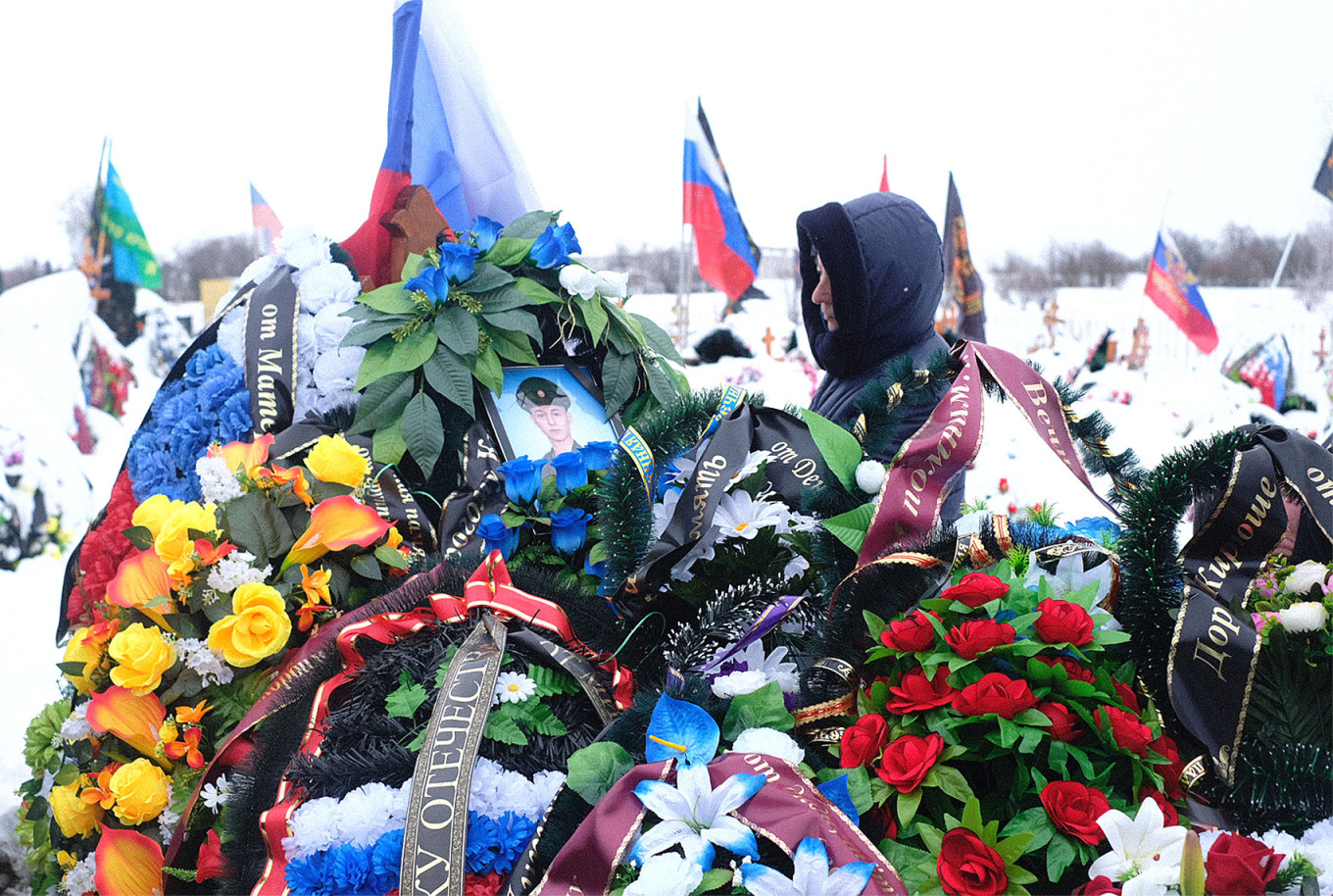
Chistyakov was also posthumously awarded the Order of Courage, a state decoration awarded to people who have shown dedication, courage and bravery.
“Kirill gave his life for his homeland, for his fatherland, for his people,” local military commissar Vladimir Kudrik said at the ceremony.
The grieving mother, however, said the awards and honors will not make up for the loss of her son.
“Hell is over for me. No amount of money, no amount of medals, or anything can ever take away this pain.”
“They were able to kill my son. But they couldn’t kill his soul,” she posted.
“To be a warrior is to live forever.”
… we have a small favor to ask.
As you may have heard, The Moscow Times, an independent news source for over 30 years, has been unjustly branded as a “foreign agent” by the Russian government. This blatant attempt to silence our voice is a direct assault on the integrity of journalism and the values we hold dear.
We, the journalists of The Moscow Times, refuse to be silenced. Our commitment to providing accurate and unbiased reporting on Russia remains unshaken. But we need your help to continue our critical mission.
It’s quick to set up, and you can be confident that you’re making a significant impact every month by supporting open, independent journalism. Thank you.